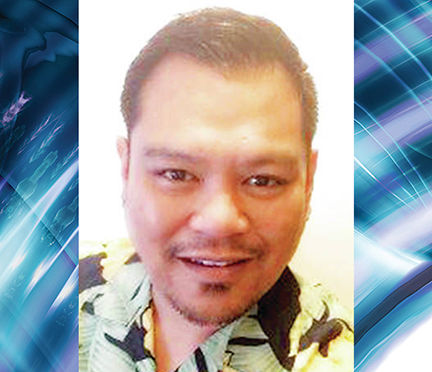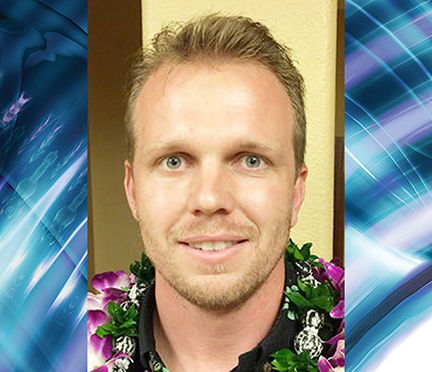KAPAA — It was nearly a year ago when Vonn Ramos came on board as executive director of Hale Opio. It was, he said, a bit daunting, to be stepping into a role held by Laverne Bishop since 2010, who
KAPAA — It was nearly a year ago when Vonn Ramos came on board as executive director of Hale Opio.
It was, he said, a bit daunting, to be stepping into a role held by Laverne Bishop since 2010, who was with Hale Opio four decades and had a strong influence on its success.
The baton was handed off to Ramos, but he didn’t race away with his own plans.
“It was challenging,” he said.
After getting to know his staff, learning their needs, and developing a strategic plan with the board, he gained sure footing. Bishop made the transition smooth, he added.
“That has helped me take the baton and run with it,” Ramos said.
Hale Opio recently held its annual meeting of the board of directors and supporters at the Courtyard by Marriott in Kapaa. About 100 people, including foster parents and foster children, attended.
Ramos oversees a staff of about 20 who serve disconnected youth from across the state at its group home on Kauai. It provides more than 20 programs for about 500 young people throughout the year that teach skills, strengthen relationships, and offer opportunities to develop youth.
A question he asks often of himself, and his staff, is this: “Are we meeting the needs of the community?”
The answer, said guest speaker Joseph O’Connell, is yes.
“The work you guys do truly impacts those in the community,” he said. “The work you do is so important.”
O’Connell, who lives in Hilo, spent time in foster care as a youth. He was one of five children who grew up in difficult circumstances.
When he was 5 years old, his mother became pregnant and asked him, “Should we keep the baby or not keep the baby?”
“That’s not an appropriate decision for a 5-year-old to make,” he said.
When O’Connell was 8, his mother was in jail and his father committed suicide. He was placed with his grandparents in a new community.
“One of the things trauma does to youth growing up, it closes the eyes of your own soul,” he said.
Foster children, he said, often feel unwanted, that they don’t fit in and see that their parents chose drugs, jail and death over them.
O’Connell, at age 11, was angry at a time he should have been having fun, he said. Being placed into foster care, he said, left him without community or family connections.
“Because of the trauma, this is what I was carrying around,” he said.
He dropped out of school at 12, and at 14, stole his grandparents truck to try and find his younger sister, who had been moved to another foster home.
At 15, life changed for the better when he attended Winner’s Camp, through a scholarship from the Friends of the Children’s Justice Center. It was there he learned he could “Be Bitter or Be Better.”
He chose better. He learned to forgive, that there were people he could trust, and he learned to believe in himself.
Not all foster kids get the opportunity he did, O’Connell said.
“Our kids in foster care don’t know what they did wrong to put them in that situation,” he said. “It’s our job to let them know it’s not about them.”
O’Connell went on to graduate from UH-Hilo with bachelor’s degrees in economics and business. Today, he is a financial literacy trainer, a leader at Winner’s Camp and a home owner.
He said the greatest trauma a child can experience is being removed from his or her parents.
“It doesn’t do a kid any good to see their parents give up on them,” he said.
That’s why Hale Opio’s work is invaluable, O’Connell said. It provides hope, love and opportunity where there was none. It keeps the connection with family.
One person sticking with a child makes a huge difference, he added. It’s the family behind a youth that makes them strong.
“You guys have a huge generational impact,” O’Connell said.
Ramos said the community is welcome to help. Foster parents, mentors and volunteers for Teen Court, “anyone who has a heart to foster youth” are needed.
“We definitely want to service more kids,” he said.
Hale Opio takes pride in its work and will continue to evaluate procedures, policies and processes for improvement.
It is seeking ways to provide emergency shelter service and housing for youth so when they leave Hale Opio, there is a place for them “to have a good start.”
“We want to look at programs that will bring together the ohana,” Ramos said.



